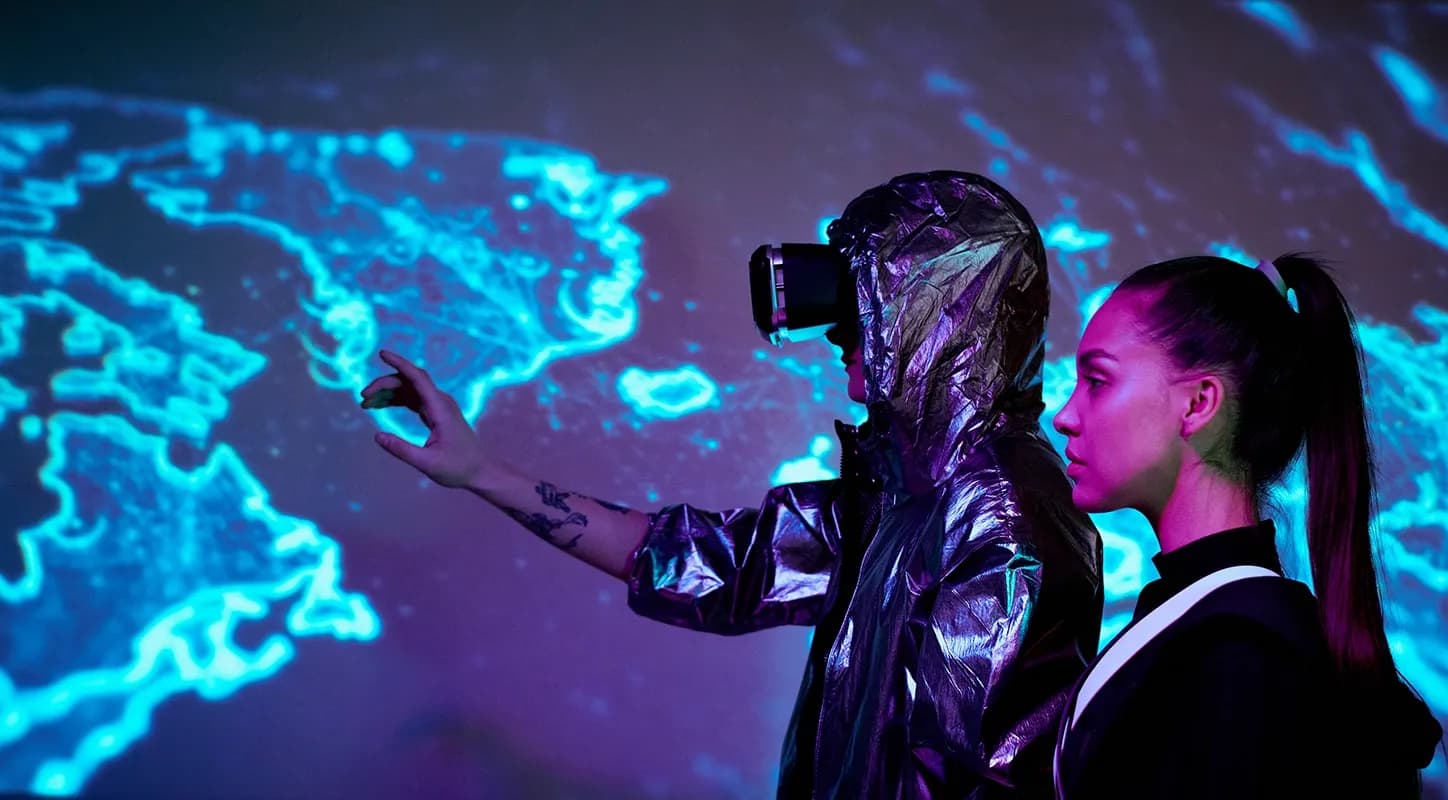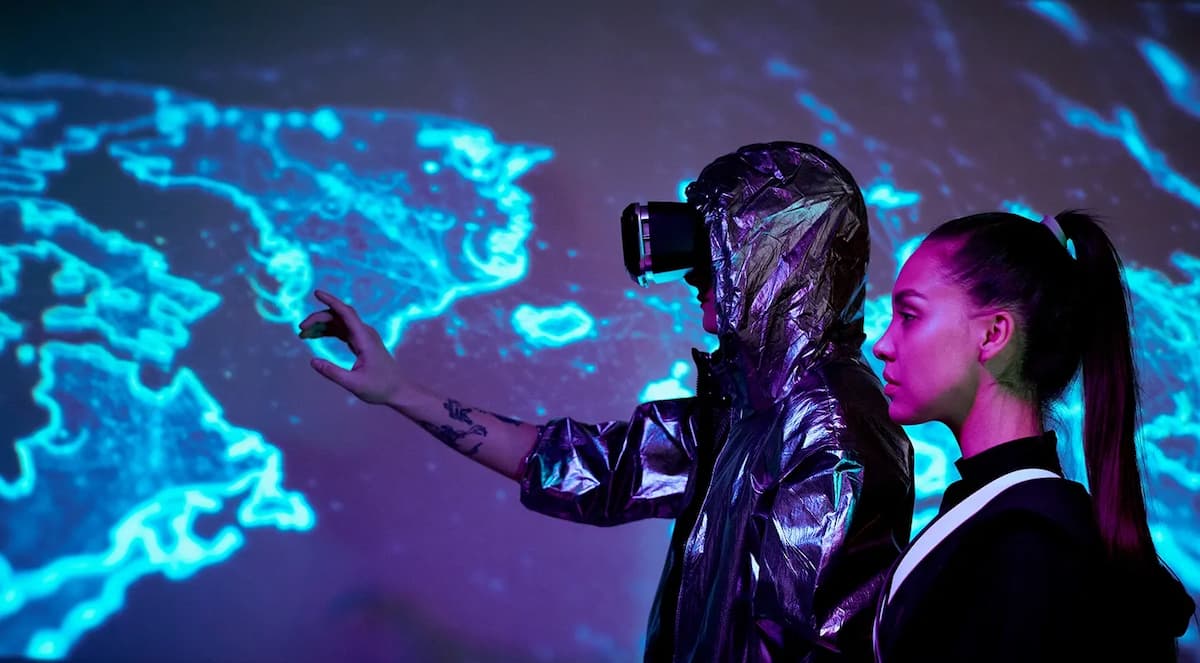This roadmap will take you on a journey, from understanding the very core of AI to mastering the most advanced AI systems. Whether you're stepping into the world of AI for the first time or refining your expertise, this guide will illuminate your path with real-world applications, industry-relevant insights, and hands-on experience.
A Glimpse Into AI Engineering
Picture yourself as an architect, not of buildings, but of intelligent systems. AI engineering is the art of designing, building, and deploying AI solutions that can solve real-world problems. It stands at the intersection of software engineering, machine learning, and data science, where theories turn into groundbreaking innovations.
AI Engineering vs. Data Science: The Key Difference
Think of a data scientist as an explorer, uncovering hidden patterns and insights within mountains of data. Meanwhile, the AI engineer is the bridge builder, transforming these insights into functional AI systems that can be integrated into the real world.
For instance, a data scientist might craft an AI model capable of detecting tumors in X-ray images. But it is the AI engineer who ensures this model functions seamlessly in hospitals, integrating it with real-time systems, making it accessible to doctors, and optimizing it for accuracy.
How AI Engineers are Changing the World?
AI engineers are modern-day problem solvers, driving change across industries. Let’s take a glimpse at how they’re making an impact:
1. Revolutionizing Healthcare
Imagine AI systems assisting doctors, analyzing medical images, predicting patient outcomes, and even aiding in drug discovery. AI engineers are the masterminds ensuring these systems are scalable, reliable, and ready for real-world application.
2. Transforming Finance
Think of AI as a digital guardian in the finance sector detecting fraud in real-time, optimizing trading strategies, and securing financial transactions. AI engineers build the backbone of these AI-powered financial tools, ensuring accuracy and security.
3. Reshaping E-Commerce & Retail
Ever wonder how Amazon predicts exactly what you need before you even search for it? AI engineers design intelligent recommendation systems, pricing algorithms, and inventory management tools that create seamless shopping experiences.
4. Reinventing Entertainment
Streaming platforms like Netflix don’t just guess what you’d like to watch next—they analyze vast datasets to personalize your experience. AI engineers are the creative forces behind these recommendation engines and generative AI tools that are changing how content is produced.
5. Powering Autonomous Vehicles
Picture a self-driving car navigating busy city streets. AI engineers design the algorithms that allow these vehicles to detect obstacles, make split-second decisions, and drive safely without human intervention.
The Skills That Define an AI Engineer
Becoming an AI engineer requires a powerful blend of knowledge, creativity, and problem-solving. Here’s what you need to master:
1. Mathematical Foundations: The DNA of AI
Numbers tell stories in AI. The ability to understand and manipulate mathematical concepts is crucial. Key areas include:
● Linear Algebra: Vectors, matrices, eigenvalues, and transformations.
● Calculus: Derivatives, integrals, and optimization.
● Statistics & Probability: Probability distributions, hypothesis testing, and Bayesian inference.
● Game Theory: The logic behind competitive AI decision-making, such as generative adversarial networks (GANs).
2. Data Science: The Art of Handling Data
AI engineers are data sculptors, ensuring AI systems are trained with clean, meaningful, and unbiased data. This involves:
● Cleaning and preprocessing data.
● Handling missing values and detecting outliers.
● Visualizing data to uncover patterns and trends.
3. Traditional Machine Learning: The Foundation of AI
Before diving into deep learning, understanding traditional machine learning is essential:
● Supervised Learning: Algorithms like logistic regression, decision trees, and gradient boosting.
● Unsupervised Learning: Clustering techniques such as K-means and hierarchical clustering.
● Model Evaluation: Precision, recall, F1-score, and cross-validation techniques.
4. Deep Learning: The Heart of Modern AI
Deep learning powers today’s most innovative AI systems. Key concepts include:
● Neural Networks: Understanding perceptrons, activation functions, and hidden layers.
● Optimization Techniques: Backpropagation and Adam optimization.
● Architectures: CNNs, RNNs, LSTMs, GANs, and Transformers.
5. Programming & AI Frameworks: Bringing AI to Life
AI engineers speak the language of machines, primarily through Python. Key tools include:
● Python Libraries: NumPy, Pandas, Scikit-learn, TensorFlow, PyTorch.
● Data Handling: Managing structured and unstructured data.
● Deployment: Using Flask, FastAPI, and cloud platforms to bring AI models to life.
6. Generative AI & Large Language Models (LLMs): The Future of AI
Generative AI is reshaping industries. Understanding how models like GPT, LLaMA, and Falcon work is critical:
● Transformers Architecture: Multi-head attention, embeddings, and tokenization.
● Fine-Tuning LLMs: Pre-training, RLHF, and prompt engineering.
● Retrieval-Augmented Generation (RAG): Enhancing AI capabilities with vector databases.
7. Ethical AI: Responsibility in Innovation
With AI’s power comes great responsibility. Engineers must ensure fairness, transparency, and ethical use of AI by:
● Mitigating bias in AI models.
● Ensuring data privacy and security.
● Adhering to AI regulations like GDPR and the AI Act.
How Long Does It Take to Become an AI Engineer?
With dedication and structured learning, it typically takes 3 to 6 months to become proficient in AI engineering. The key is balancing theoretical learning with hands-on projects, hackathons, and real-world applications.
Your Future as an AI Engineer
The AI landscape is evolving at an unprecedented pace, and AI engineers are at the heart of this revolution. With salaries ranging from $80K to $750K annually, the demand for AI talent is skyrocketing.
If you’re ready to take the leap, now is the time. Whether you aim to land a dream job or create the next AI unicorn, this roadmap will guide you on your journey. The future of AI engineering is yours to shape, are you ready to build it?












